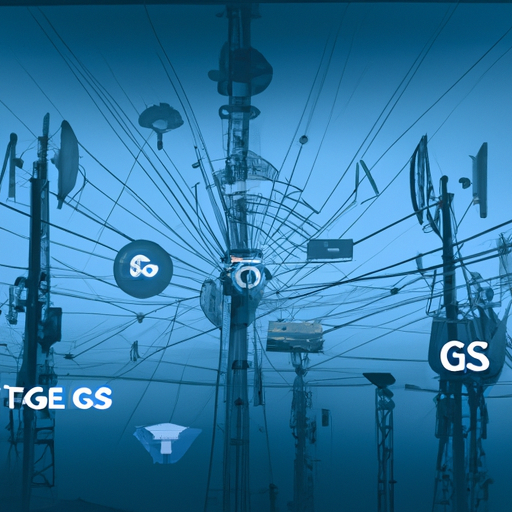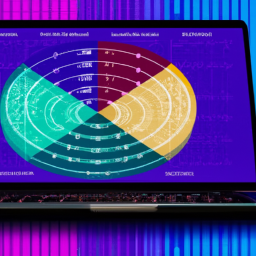Are There Industry-specific IT Services?
In today’s increasingly digital landscape, businesses across various industries are relying on Information Technology (IT) to streamline their operations and achieve their goals. From healthcare to finance, retail to manufacturing, IT has become an integral part of organizational success. But as businesses become more specialized, the question arises: are there industry-specific IT services? This article explores the concept of tailoring IT solutions to specific industries, highlighting the benefits and challenges that come with catering to unique business needs.
Introduction
When it comes to IT services, one size does not fit all. Different industries have unique needs and requirements that cannot be met by generic IT solutions. This is where industry-specific IT services come into play. These specialized services are designed to address the specific challenges and demands of various sectors, providing tailored solutions that maximize efficiency, productivity, and security. In this article, we will explore the definition and importance of industry-specific IT services, examine some examples across different sectors, discuss the factors influencing their implementation, analyze the benefits and challenges they present, provide tips for choosing the right provider, and explore future trends in this field.
Understanding Industry-specific IT Services
Definition
Industry-specific IT services refer to the specialized IT solutions and services that are specifically developed and designed to meet the unique needs and requirements of a particular industry. These services encompass a wide range of solutions, including software development, network management, cybersecurity, data analytics, and cloud computing, among others. By tailoring IT services to the specific demands and challenges of a particular sector, businesses can optimize their operations, enhance productivity, and gain a competitive edge in the marketplace.
Importance
The importance of industry-specific IT services cannot be overstated. Every industry operates under its distinct set of regulations, processes, and practices, which necessitate specialized IT solutions. These services go beyond generic IT support by incorporating industry-specific knowledge and expertise. By leveraging these specialized services, businesses can streamline their operations, improve efficiency, enhance security, and address the unique challenges of their sector. Furthermore, industry-specific IT services provide organizations with a competitive advantage by enabling them to leverage the latest technologies and stay ahead of the curve in their respective industries.
Examples of Industry-specific IT Services
Healthcare IT Services
In the healthcare industry, the need for specialized IT solutions is critical due to the sensitive nature of patient data and the complex regulatory environment. Healthcare IT services encompass electronic health record (EHR) systems, telehealth solutions, medical imaging systems, patient appointment and scheduling software, and data security measures. These services enable healthcare providers to streamline their operations, improve patient care, enhance communication, and ensure compliance with privacy regulations.
Retail IT Services
Retail businesses rely heavily on IT solutions to manage inventory, process sales, and deliver a seamless customer experience. Retail IT services include point-of-sale systems, inventory management software, customer relationship management (CRM) tools, e-commerce platforms, and loyalty program management software. These services help retailers optimize their supply chain, improve customer service, track sales data, and create personalized marketing campaigns.
Finance IT Services
The finance industry has unique IT needs to ensure operational efficiency, regulatory compliance, and data security. Finance IT services encompass risk management systems, trading platforms, investment management software, anti-money laundering solutions, and data analytics tools. These services enable financial institutions to automate processes, manage risk, comply with regulations, and make data-driven decisions.
Manufacturing IT Services
Manufacturing companies require IT services to enhance productivity, streamline operations, and ensure quality control. Manufacturing IT services include enterprise resource planning (ERP) systems, supply chain management software, manufacturing execution systems, and quality control solutions. These services enable manufacturers to optimize production, track inventory, manage logistics, and integrate processes across the organization.
Education IT Services
In the education sector, IT services play a crucial role in enhancing learning experiences, facilitating communication, and managing administrative tasks. Education IT services include learning management systems (LMS), student information systems, online collaboration platforms, and virtual classrooms. These services enable educational institutions to offer personalized learning, streamline administrative processes, facilitate communication between students and teachers, and track student progress.
Hospitality IT Services
The hospitality industry relies on IT solutions to manage reservations, provide personalized guest experiences, and optimize operations. Hospitality IT services include property management systems, online booking platforms, customer relationship management (CRM) software, and guest service applications. These services enable hotels, resorts, and restaurants to automate processes, enhance guest satisfaction, track customer preferences, and manage operations efficiently.
Telecommunications IT Services
Telecommunications companies require IT services to manage their network infrastructure, provide uninterrupted services, and analyze customer usage patterns. Telecommunications IT services include network monitoring systems, billing and invoicing software, customer relationship management (CRM) tools, and network security solutions. These services enable telecom providers to optimize network performance, ensure reliable service delivery, streamline billing processes, and improve customer satisfaction.
Transportation IT Services
The transportation industry relies on IT solutions to manage logistics, track shipments, and optimize routes for efficient delivery. Transportation IT services include fleet management systems, vehicle tracking software, transportation management systems, and supply chain visibility tools. These services enable transportation companies to improve efficiency, reduce costs, track shipments in real-time, and enhance customer satisfaction.
Factors Influencing Industry-specific IT Services
Regulatory Compliance
Different industries operate under unique regulations and compliance requirements. Industry-specific IT services must take into account these regulations to ensure data privacy, security, and adherence to industry-specific standards. For example, healthcare IT services must comply with the Health Insurance Portability and Accountability Act (HIPAA), while finance IT services must adhere to the regulations set by the financial regulatory bodies.
Security and Privacy
Data security and privacy are paramount in today’s digital landscape. Industry-specific IT services must incorporate robust security measures to protect sensitive data from cyber threats, ensure compliance with privacy regulations, and safeguard against unauthorized access. These services should include encryption, multi-factor authentication, secure data storage, and regular security audits.
Business Processes
Each industry has its unique set of business processes and workflows. Industry-specific IT services need to align with these processes to optimize operations, enhance efficiency, and minimize disruption. IT solutions must integrate seamlessly into existing workflows or provide tools that allow for customization to meet the specific needs of the industry.
Technology Infrastructure
The technology infrastructure of different industries varies in terms of complexity, scalability, and integration capabilities. Industry-specific IT services should take into account the existing technology infrastructure and determine the compatibility and scalability of the proposed solutions. This includes considerations such as hardware requirements, software integrations, and future-proofing the technology stack.
Benefits and Challenges of Industry-specific IT Services
Benefits
The benefits of industry-specific IT services are significant and wide-ranging. By utilizing these specialized services, businesses can:
- Optimize Operations: Industry-specific IT services are tailored to the unique needs of a particular industry, enabling businesses to streamline their operations, reduce inefficiencies, and enhance overall productivity.
- Improve Security: These services incorporate robust security measures customized for each sector, safeguarding sensitive data, preventing cybersecurity threats, and ensuring compliance with industry-specific regulations.
- Enhance Efficiency: Through automation, integration, and customization, industry-specific IT services enable businesses to automate repetitive tasks, integrate disparate systems, and enhance overall efficiency.
- Stay Competitive: By leveraging the latest technologies and industry-specific expertise, businesses can gain a competitive advantage, stay ahead of the curve, and respond effectively to ever-changing market dynamics.
- Scale and adapt: Industry-specific IT services provide businesses with scalable solutions that can grow and adapt to their changing needs. This flexibility allows businesses to remain agile and responsive to market demands.
Challenges
While industry-specific IT services offer numerous benefits, there are also challenges to consider. These challenges may include:
- Cost: Implementing industry-specific IT services can be costly, as they often require specialized hardware, software, and expertise. It is essential for businesses to evaluate the return on investment and ensure the cost justifies the benefits.
- Complexity: IT services tailored for specific industries can be complex due to the unique requirements and diverse processes involved. Businesses may need to invest in training and change management to ensure smooth implementation and adoption.
- Integration: Integrating industry-specific IT services with existing systems and processes can be challenging. Compatibility and seamless integration need to be carefully considered to avoid disruptions and ensure smooth operations.
- Vendor Selection: Choosing the right provider of industry-specific IT services is crucial. It requires careful evaluation of expertise, experience, reliability, and the ability to meet the specific needs of the industry.
- Scalability: As businesses grow and evolve, their IT needs change. It is vital for industry-specific IT services to provide scalability options that can accommodate future growth without significant disruptions or the need for a complete overhaul of IT infrastructure.
Choosing the Right Industry-specific IT Services Provider
Selecting the right provider of industry-specific IT services is essential to ensure a successful implementation that aligns with the unique requirements of the industry. Consider the following factors when choosing a provider:
Assessing Industry Expertise
Look for a provider that has extensive experience and expertise in serving your specific industry. They should have a deep understanding of the industry’s unique challenges, regulations, and best practices. A provider with industry-specific knowledge can offer tailored solutions that address your specific needs effectively.
Scalability and Customization
Ensure that the provider can offer scalable solutions that can grow and adapt to your business’s changing needs. The services should be flexible enough to allow for customization to meet your specific requirements without compromising the overall functionality.
Security Measures
Data security is paramount in today’s digital landscape. Ensure that the provider has robust security measures in place to protect your sensitive data. This includes encryption, secure data storage, regular security audits, and multi-factor authentication.
Service Level Agreements
Review the provider’s Service Level Agreements (SLAs) to understand the level of support and maintenance they offer. SLAs should clearly define the response times, issue resolution procedures, and service availability guarantees.
Cost-effectiveness
Evaluate the cost implications of the provider’s services and compare them to the expected benefits. Consider factors such as upfront costs, ongoing maintenance, licensing fees, and potential savings in operational costs and efficiency gains.
Future Trends in Industry-specific IT Services
The field of industry-specific IT services is continually evolving, driven by technological advancements and changing industry demands. Some future trends to keep an eye on include:
Digital Transformation
As industries continue to embrace digital transformation, industry-specific IT services will play a crucial role. Adoption of technologies such as cloud computing, artificial intelligence, and the Internet of Things (IoT) will enable businesses to optimize their operations, data management, and customer experiences.
Cloud Computing
Cloud computing will continue to revolutionize the way businesses store, access, and process data. The scalability, flexibility, and cost-effectiveness of cloud solutions make them ideal for industry-specific IT services. Cloud platforms will enable businesses to access industry-specific applications, collaborate seamlessly, and leverage global resources.
Artificial Intelligence and Machine Learning
Artificial intelligence (AI) and machine learning (ML) technologies hold great potential in optimizing industry-specific IT services. These technologies can automate repetitive tasks, analyze vast amounts of data, and provide valuable insights and predictions. AI-powered solutions will revolutionize industries such as healthcare, finance, and manufacturing.
Internet of Things
The Internet of Things (IoT) will enable industries to connect devices, sensors, and machines, creating a network of intelligent systems. IoT solutions will provide real-time data, automate processes, and drive efficiency across various sectors such as transportation, manufacturing, and healthcare. Industry-specific IT services will play a crucial role in harnessing the full potential of IoT.
Conclusion
Industry-specific IT services are a necessity for businesses operating in diverse sectors. By aligning IT solutions with the unique needs and challenges of each industry, businesses can optimize their operations, enhance efficiency, and stay competitive in the marketplace. From healthcare to finance, retail to hospitality, industry-specific IT services provide tailored solutions that improve productivity, ensure compliance, and unlock new opportunities for growth. As technology continues to evolve, businesses must stay informed about future trends and embrace innovations that will enable them to thrive in an increasingly digital world.







